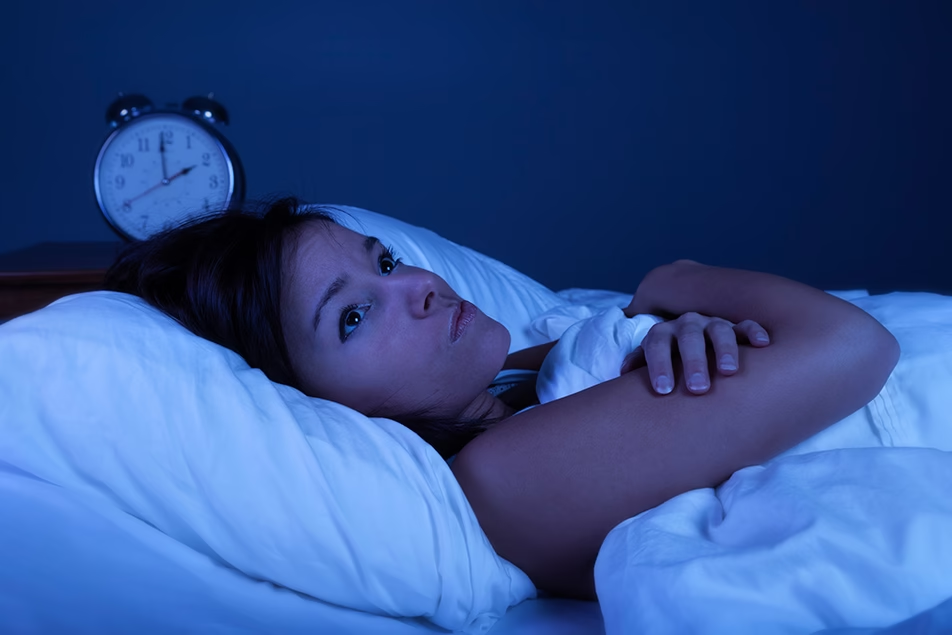Reasons for Sleeplessness in Adults – Practice These 10 Consistent Bedtime Routines for Good Quality Sleep
Sleep is essential to our overall health, yet millions of adults suffer from sleepless nights or poor-quality sleep. The frustration of lying awake, staring at the ceiling, watching time slip away, while your mind races with thoughts, can feel endless. Understanding the reasons for sleeplessness and implementing a consistent bedtime routine is key to enjoying restful nights and improving your mental and physical well-being.
Common Reasons for Sleeplessness in Adults
Many factors contribute to sleeplessness in adults. Understanding the root causes is the first step toward finding sleep problems solutions.
- Stress and Anxiety (Stress Insomnia)
Chronic stress is one of the most common causes of insomnia in adults. Racing thoughts, worry about work, family issues, or financial troubles can keep your brain hyperactive, preventing relaxation needed for sleep.
- Poor Sleep Environment
Noise, light, or uncomfortable bedding can disrupt your sleep. A noisy neighborhood or blue light from screens impacts melatonin production, interfering with your body’s natural sleep-wake cycle.
- Irregular Sleep Schedule
Inconsistent bedtimes and wake-up times confuse your body’s internal clock, leading to early insomnia or irregular sleep patterns.
- Caffeine and Alcohol Consumption
Drinking caffeine too late in the day or consuming alcohol before bedtime disrupts sleep cycles. While alcohol may initially make you drowsy, it leads to fragmented sleep later in the night.
- Medical Conditions and Medications
Certain health problems like chronic pain, acid reflux, or depression can interfere with sleep. Some medications, such as antidepressants or corticosteroids, can also have side effects that impair sleep.
- Excessive Screen Time Before Bed
The blue light from smartphones, tablets, and computers suppresses melatonin, making it difficult to fall asleep.
- Hormonal Changes
Especially common in women, hormonal imbalances during menopause or pregnancy can cause hot flashes, mood swings, and sleep disturbances.
- Lack of Physical Activity
A sedentary lifestyle leads to low energy expenditure, making it harder to feel tired at night.
The Best Ways to Sleep: 10 Consistent Bedtime Habits
To improve having a good sleep and fight sleeplessness, the key is consistency. Building healthy bedtime habits creates a positive routine your body comes to recognize as a sleep trigger.
- Stick to a Fixed Sleep Schedule
Go to bed and wake up at the same time every day, even on weekends. This consistency regulates your body’s internal clock and helps prevent early insomnia and irregular sleep patterns.
- Create a Relaxing Pre-Sleep Routine
Engage in calming activities like reading a book, listening to soft music, or practicing light stretching. Avoid stressful conversations or work right before bed.
- Limit Screen Time
Avoid screens at least 1 hour before bed. If unavoidable, use blue light filters or night mode to reduce melatonin suppression.
- Control the Sleep Environment
Ensure your bedroom is quiet, dark, and cool. Invest in blackout curtains and consider white noise machines if external noise is unavoidable.
- Watch Food and Drink Intake
Avoid caffeine after mid-afternoon and heavy meals before bedtime. Alcohol disrupts sleep stages, so limit intake close to bedtime.
- Exercise Regularly
Daily physical activity helps regulate your sleep-wake cycle and promotes deeper sleep. However, avoid vigorous exercise too close to bedtime, which can be stimulating.
- Manage Stress and Anxiety
Incorporate relaxation techniques like meditation, deep breathing, or journaling to quiet your mind before bed.
- Use the Bed Only for Sleep and Intimacy
Train your brain to associate your bed with sleep. Avoid working, watching TV, or using devices in bed.
- Limit Naps
If you must nap, keep it short (20–30 minutes) and avoid late-afternoon naps that disrupt nighttime sleep.
- Seek Professional Help When Necessary
If sleep problems persist despite healthy habits, consult a sleep specialist. Conditions like chronic insomnia may require the cure for insomnia through professional treatment.
Final Thoughts
Sleeplessness in adults is rarely caused by a single factor. It’s a combination of lifestyle choices, emotional health, environment, and sometimes medical conditions. Understanding the reasons for sleeplessness empowers you to make positive changes.
By practicing these 10 consistent bedtime routines, you not only reduce the likelihood of sleepless nights but also support your body in achieving true quality sleep. Remember, good sleep isn’t a luxury—it’s a fundamental building block of health.
Sleep well, live well.
